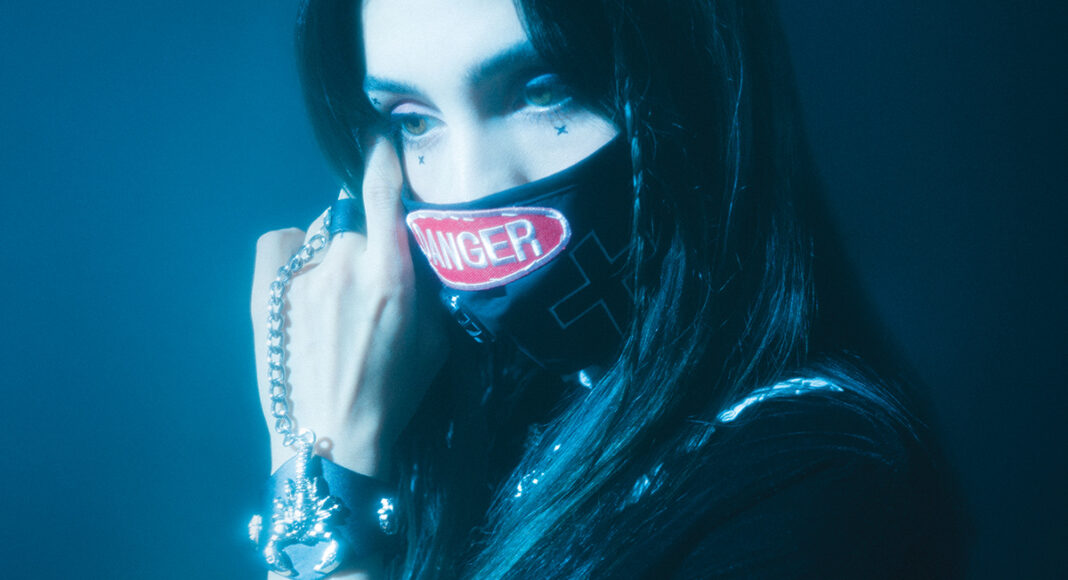Early last month, Russian punk collective Pussy Riot was filming a music video for their new single “Rage.” An hour into the shoot in Russia’s second-largest city, St. Petersburg, they received a message: the cops were in the lobby.
“They wanted to talk to me, the director, and the producer,” says Nadya Tolokonnikova, the band’s frontwoman.
The shoot, police told them, was over. The reason cited: a 2013 law banning all media depictions of “nontraditional sexual relationships.” Internationally, the law has become known as the “Gay Propaganda Law.”
Out in the lobby, Tolokonnikova argued with the police. No one had even seen the video, she told them, so how could they know laws were being broken? Half an hour into their conversation, the power was cut to the whole building.
“They told us they couldn’t allow anyone in the building because there was no electricity, blah blah blah,” she says. “It’s a big production facility in the center of St. Petersburg. But police cut off electricity to the whole building, just because Pussy Riot was using their facility.”
Police also blocked attempts to bring in a generator, so the band called off the shoot. The next day, they relocated and took promo photos instead. When the cops came, they took the band back to the station, grinding all production to a halt. The video was never completed.
By now, the members of Pussy Riot are no strangers to police harassment. The band first came to international attention in 2012 when they staged their performance-art protest piece “Punk Prayer” at Moscow’s orthodox Christ the Savior Church. Fending off security, the band stormed the altar during mass and made a heartfelt plea to the Virgin Mary to remove Putin from power. That same year, two journalists, Alexander Khodzhinsky and Kazbek Gekkiev, were killed for being critical of Putin in writing. For their performance, Tolokonnikova and her bandmate Maria Alyokhina were each charged with hooliganism and given 2-year prison sentences. Ever since, the Moscow-based band has been under a near-constant state surveillance.
“Once you’re on their list, there’s a lot of people following you, watching your every step, and making sure they cause as much damage to your activity as they can,” Tolokonnikova says. “It’s the same exact people who post propaganda trying to interfere in American elections.”
The autocratic Russian government is not the collective’s only target. Last July, the band premiered the single “Hangerz” at a benefit for Planned Parenthood in Birmingham, Alabama. At the time, the state had just passed the strictest anti-abortion legislation in the country. Featuring a refrain of “no wire hangers ever” and a chorus of “Burn down this shit / I’m opening up the pit,” Pussy Riot’s grimy industrial dance song put the new law directly in its crosshairs.
“Abortion bans never work,” the single’s press release states. “Throughout history we see that abortion bans cause only a growth of illegal procedures that often lead to severe pain and serious damage to women’s health, including death.”
Tolokonnikova says the show in Birmingham felt special.
“I truly felt my purpose,” she says. “I felt less like an entertainer, and more like an activist. I felt solidarity with everyone who was in the room.”
The first single from Pussy Riot’s forthcoming untitled full length album, the music on “Hangerz” represents a shift for Pussy Riot: less punk in sound; more punk in spirit.
“I think we are in an evolutionary moment for the band,” Tolokonnikova says. “The concept of this album is hardcore. All types of hardcore. Punk. Trap. Metal. Hardbass. Witchhouse. Anything that can be described as hardcore, we tried to include it.”
Now making the most confrontational music of their career, Tolokonnikova hopes that Pussy Riot will stoke the passions of young people and lead them to take action. The band is donating a percentage of all proceeds for the current tour to Planned Parenthood. At a time when authoritarianism is on the rise globally, and the American president has a habit of fawning over any dictator within sight, their philosophy of music as direct action feels more vital than ever.
“Young people have all the power in the world,” Tolokonnikova says. “You’re the ones who will be in charge. You need to realize that you have the power, connect with other people, believe in and practice collective action. And you’d better do it soon, or else it will be too late.”













